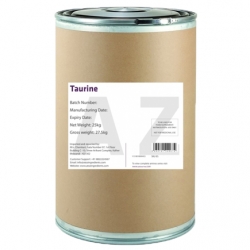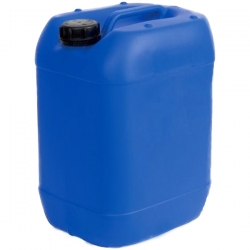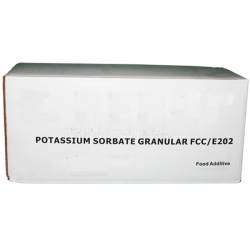No products in the cart.
Active filters
E330 - Citric Acid
Citric Acid is a tricarboxylic acid found in citrus fruits. Citric acid is used as an excipient in pharmaceutical preparations due to its antioxidant properties. It maintains stability of active ingredients and is used as a preservative. It is also used as an acidulant to control pH and acts as an anticoagulant by chelating calcium in blood.
AMMONIA SOLUTION
Ammoniacal solution is an aqueous solution of ammonia (NH₃) in water. It is also known as liquid ammonia.
CHOLINE CHLORIDE 75%
Choline chloride is an organic compound and a quaternary ammonium salt. Choline chloride is internationally recognized and accepted as a food additive.
AMMONIUM CHLORIDE
Ammonium chloride (NH4Cl) is a chemical compound formed by the combination of ammonium ions (NH4+) and chloride ions (Cl-).
CALCIUM IODATE
Calcium iodate, with the chemical formula Ca(IO₃)₂, is an inorganic compound that finds applications in several fields, including the food industry, medicine, and scientific research.
E511 - MAGNESIUM CHLORIDE
Magnesium chloride is a chemical compound represented by the formula MgCl₂, indicating its chemical structure composed of magnesium (Mg) and two chloride ions (Cl). It is widely used in various fields, including medicine, agriculture, and water treatment.
TAURINE
Taurine is an amino acid present at various levels in the body, including the brain, muscles, and retina. It plays various roles and is particularly essential for the development of the nervous system. However, it is its use in energy drinks that has made it famous.
E296 - MALIC ACID
Malic acid is an organic compound with the molecular formula C4H6O5. It contributes to the pleasantly sour taste of fruits and is used as a food additive. Malic acid has two stereoisomeric forms (L- and D-enantiomers), although only the L-isomer exists naturally. Malic acid is highly hygroscopic, soluble in water and ethanol. It has a special pleasant acidity.
E270-LACTIC ACID
Lactic acid is utilized in the food industry as an additive (E270) serving as an antioxidant, acidifier, or flavor enhancer. It also exists in the form of salts: sodium salt (E325), potassium salt (E326), and calcium salt (E327). These salts are in powder form and are water-soluble. Lactic acid acts as a bacteriostatic agent, particularly against pathogenic bacteria such as Salmonella or Listeria, and also has a water activity-depressing effect.
Lactic acid is an organic compound, naturally forming in muscles during intense exercise to produce energy. It is also present in wine, dairy products, and certain vegetables after fermentation.
FUMARIC ACID
Fumaric acid, or trans-butenedioic acid, is an unsaturated dicarboxylic acid with the chemical formula HOOC–CH=CH–COOH. It appears as a crystalline white powder that is odorless, combustible but weakly flammable, and slightly soluble in water.
E202-POTASSIUM SORBATE
Potassium sorbate (E202) is a potassium salt of sorbic acid. It is commonly used as a food preservative to inhibit the growth of molds and yeasts, thereby helping to extend the shelf life of foods.
E211-SODIUM BENZOATE
Sodium benzoate (E211) is a widely used food preservative in the food industry to extend the shelf life of products.
E200-SORBIC ACID
Sorbic acid is an additive used as an antifungal agent and as a preservative (E200) for fruits and vegetables. Therefore, it can be found in various food products based on fruits and vegetables (yogurts, cider, etc.) as well as in light mayonnaises and margarines.
SODIUM ASCORBATE
Sodium ascorbate is a potent antioxidant; it is widely used in the food industry for food preservation.
PROPIONIC ACID
Propionic Acid, is a food preservative widely used for its antifungal and antibacterial properties. It is commonly added to various food products to extend their shelf life and prevent the growth of undesirable molds and bacteria.
SODIUM PROPIONATE
Sodium propionate (E281) is a sodium salt of propionic acid, a carboxylic acid. It is used as a food additive in the food industry, primarily as a preservative agent to inhibit the growth of molds and yeasts, thereby extending the shelf life of food products.


































































